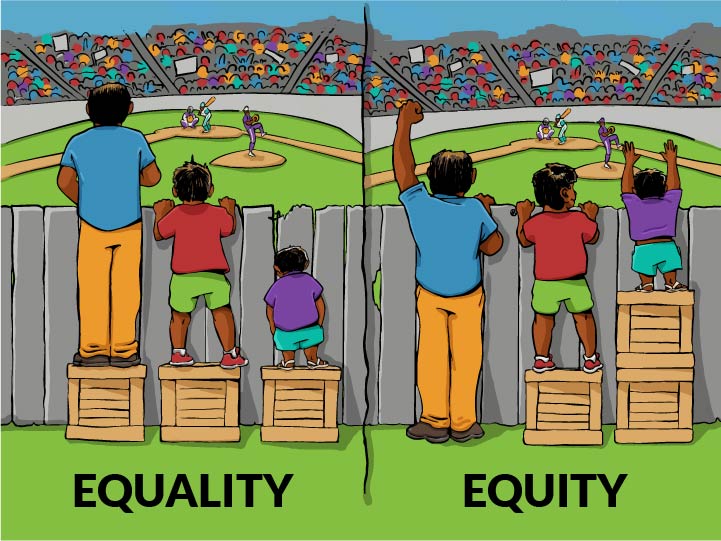A text by Ciprian NECULA, REF’s Chair of the Board
The Supreme Court of the United States recently put an end to educational affirmative action measures for vulnerable groups, and this decision posed an unexpected challenge for President Joe Biden, who now needs to navigate a new legal reality in the subject matter of equal rights and opportunities.
The Supreme Court’s decision reminded me of how Prof. Dr. Mihaela Miroiu, in front of a class at the National University of Political Studies and Public Administration – SNSPA, once defined the boundary between public and private space in the simplest way possible: “You are only allowed to be racist while under the shower; once you’ve stepped out, you will have lost that permission.”
Affirmative action measures in education have served as a way to compensate for the racist treatment applied to certain groups of people, composed of individuals who suffered throughout history at the hands of those who saw themselves somewhat superior based on their white skin and their power to decide. These balancing measures were the expected social justice for those who had been slaves, for those who remained marginalized or segregated, with limited access to humanity’s resources, as a result of racist policies. However, affirmative action measures are not meant to independently and fully resolve the issue of inclusion. They simply provide a pledge that historically disadvantaged individuals, who need to start making their way up from the very outskirts of society, from ghettos or from stigmatized groups, have a chance to study at universities. Subsequently, after admission, vulnerable students are expected to perform just like anyone else. And this leads to the creation of elite that takes into account ethnic diversity.

Surely, affirmative action measures cannot last forever. At some point, they must disappear. Today, we can only imagine two circumstances in which affirmative action measures would no longer justify their necessity: a) one in which the problem of racial/ethnic inequalities has been resolved, or b) another where a political decision is made to turn society back to the days before the establishment of affirmative action measures.
Looking at it from a distance, the social and political reality of the USA does not seem to align well with hypothesis a).
I understand that former president Trump and his policies have even changed the general perspective on human rights in the US, and that the “white,” “male,” “Christian,” “middle class” individuals are currently experiencing a constant frustration – that is only now being expressed – because they do not feel “favored” in contemporary society, even though they benefit from an enormous implicit historical advantage over vulnerable categories. In general terms, American society (and not only) seems to have grown tired of trying to be politically correct when, in fact, it prefers to be politically incorrect. Or, as Professor Miroiu would say, the racists have come out from under the shower!
The only weight-holding argument that conservatives present to the public debate is “meritocracy.” Of course, who would expect them to admit that they are tired of political correctness? Conservatives argue that race, ethnicity, gender, sexual orientation shouldn’t matter, and only results should make the difference, anywhere and everywhere. It is a deceptive position, though, because it doesn’t take into account the social and cultural realities that dominate our societies. It’s a way of saying, “we are all equal…” but equal in the eyes of God, not in the eyes of our fellow human beings. On Earth, where you are born, what in fact matters is the colour of your skin, the neighbourhood in which you grew up, your gender, your religion, your sexual orientation, the tolerance or the intolerance of your fellow person.

Affirmative Action Measures for Roma in Romania
In Romania, we have our own affirmative action measures, aimed at a multitude of vulnerable groups, who are in need of access to education. The best-known measures are those offered to the Roma community. It all began in the 90s, when, under pressure from advocacy campaigns by Roma NGOs, Romania decided to offer exclusive places in state-financed higher education institutions, for Roma individuals; later on, this policy would be extended to high-schools.
Three decades of affirmative action have produced thousands of Roma university graduates. Some of them are now working for their communities, but most have simply disappeared, amidst the ranks of public servants or private sector employees (some even denying their ethnic identity). It is safe to conclude that affirmative action education measures have proven beneficial at an individual level, but they failed to create a Roma elite capable of changing the situation within their own communities.
Even so, affirmative action measures in education should be supported, far beyond their initial purpose of making university admission easier (because in 2023, most universities in Romania accept students simply based on their application, without the burden of an exam), but more as an instrument for a better involvement of Roma graduates in the development of their respective communities.
It is obvious that affirmative action measures, at least in our present-day context, are not just politically correct measures, but also a vital necessity in a society where there more educated people we have, the better off we all are.
Also, read “Why Europe needs Roma to Drive its Economy“, a text signed by Ciprian NECULA in Al Jazeera.

















